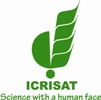Securing the Harvest: New Irish Aid Project Fights Hunger in Malawi
Published 03-03-09
Submitted by ICRISAT
- March 3, 2009 - The development of agriculture in Malawi is severely hampered by an inadequate supply of a basic farming necessity "“ seed. "Our biggest problem is that we cannot get enough foundation seed. Small companies are not surviving," says Felix Jumbe, Executive Secretary of the Seed Trade Association of Malawi (STAM).
Foundation seed is used to produce certified seed, which is what farmers' plant every season. Without foundation seed there is an insufficient supply of certified seed, leading to low yields at harvest time. This, combined with the limited variety of crops grown, has led to high malnutrition rates in the country.
Ireland's history and experience of crop failures and famine have influenced its approach in the fight against poverty and hunger. In Malawi, Irish Aid has recognized the value of good quality seed to smallholder farmers by partnering with ICRISAT, an international agricultural research center committed to improving food security through the development of better crop varieties and improved ways of growing crops.
The Irish Government set up a Hunger Task Force of international experts to examine food and nutrition insecurity and their report was launched in September 2008 by the Irish Prime Minister Brian Cowen, and the UN Secretary General Ban Ki Moon. The partnership with ICRISAT helps to deliver on the recommendations of the report.
Dr. Vincent O'Neill, Head of Development at the Embassy of Ireland said, "ICRISAT, with its long experience in seed development and work in other parts of Africa, is the perfect partner for this initiative. By working to satisfy the demand for foundation seed, we believe that we can make an impact on long term food security and combating malnutrition in the country."
Rather than giving out free seed, the new project will support local entrepreneurs in seed production and marketing of crops such as groundnuts that are not only highly nutritious but also have a ready market both within Malawi and overseas. This will hugely benefit local smallholder farmers and their families.
The project, with support totaling almost 80 million Malawi Kwacha (MK), will involve all the major stakeholders in Malawi's seed sector including NASFAM (a 100,000 member farmer association) and NGOs such as CNFA to promote a cohesive market-driven approach.
Ireland opened an Embassy in Malawi in November 2007. In 2008 Ireland's support to Malawi totaled over €15 million (MK3bn). Much of this funding is directed towards the development of agriculture.

ICRISAT
ICRISAT
The International Crops Research Institute for the Semi-Arid Tropics (ICRISAT) is a nonprofit, non-political organization that does innovative agricultural research and capacity building for sustainable development with a wide array of partners across the globe. ICRISAT's mission is to help empower 600 million poor people to overcome hunger, poverty and a degraded environment in the dry tropics through better agriculture. ICRISAT belongs to the Alliance of Future Harvest Centers of the Consultative Group on International Agricultural Research (CGIAR).
ICRISAT's headquarter is located in Patancheru, near Hyderabad in south central India with six locations in sub-Saharan Africa. The regional hub for West and Central Africa (WCA) is located in Niamey, Niger. Scientists are also based in our research center in Bamako, Mali, and in Kano, Nigeria. Presently ICRISAT covers 17 countries endowed with core competencies in the areas of agronomy, soil science, pearl millet breeding, sorghum breeding, groundnut breeding, socio-economy and GIS.
A primary driver for ICRISAT in WCA is to spur market demand through market-oriented production and value addition while ensuring the farmer's own food security. Therefore our research focuses on enhancing and stabilizing yields and generating innovations to help farmers increase their income and resilience, and reduce vulnerability while protecting the environment.
More from ICRISAT

